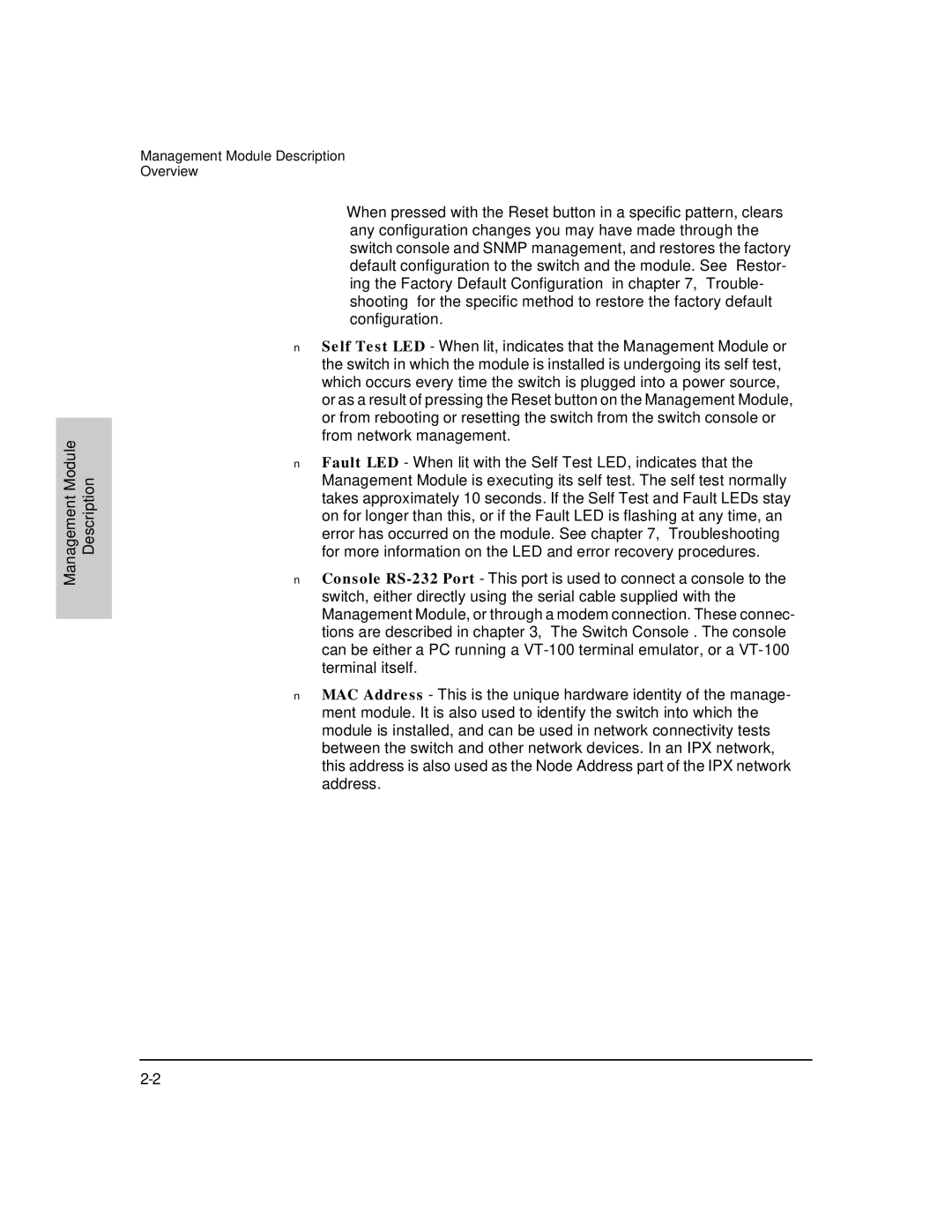Management Module | Description |
|
|
Management Module Description
Overview
•When pressed with the Reset button in a specific pattern, clears any configuration changes you may have made through the switch console and SNMP management, and restores the factory default configuration to the switch and the module. See “Restor- ing the Factory Default Configuration” in chapter 7, “Trouble- shooting” for the specific method to restore the factory default configuration.
■Self Test LED - When lit, indicates that the Management Module or the switch in which the module is installed is undergoing its self test, which occurs every time the switch is plugged into a power source, or as a result of pressing the Reset button on the Management Module, or from rebooting or resetting the switch from the switch console or from network management.
■Fault LED - When lit with the Self Test LED, indicates that the Management Module is executing its self test. The self test normally takes approximately 10 seconds. If the Self Test and Fault LEDs stay on for longer than this, or if the Fault LED is flashing at any time, an error has occurred on the module. See chapter 7, “Troubleshooting” for more information on the LED and error recovery procedures.
■Console
■MAC Address - This is the unique hardware identity of the manage- ment module. It is also used to identify the switch into which the module is installed, and can be used in network connectivity tests between the switch and other network devices. In an IPX network, this address is also used as the Node Address part of the IPX network address.
